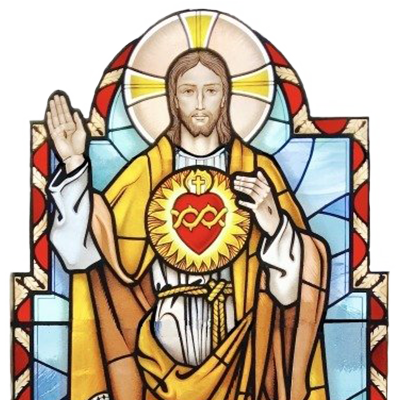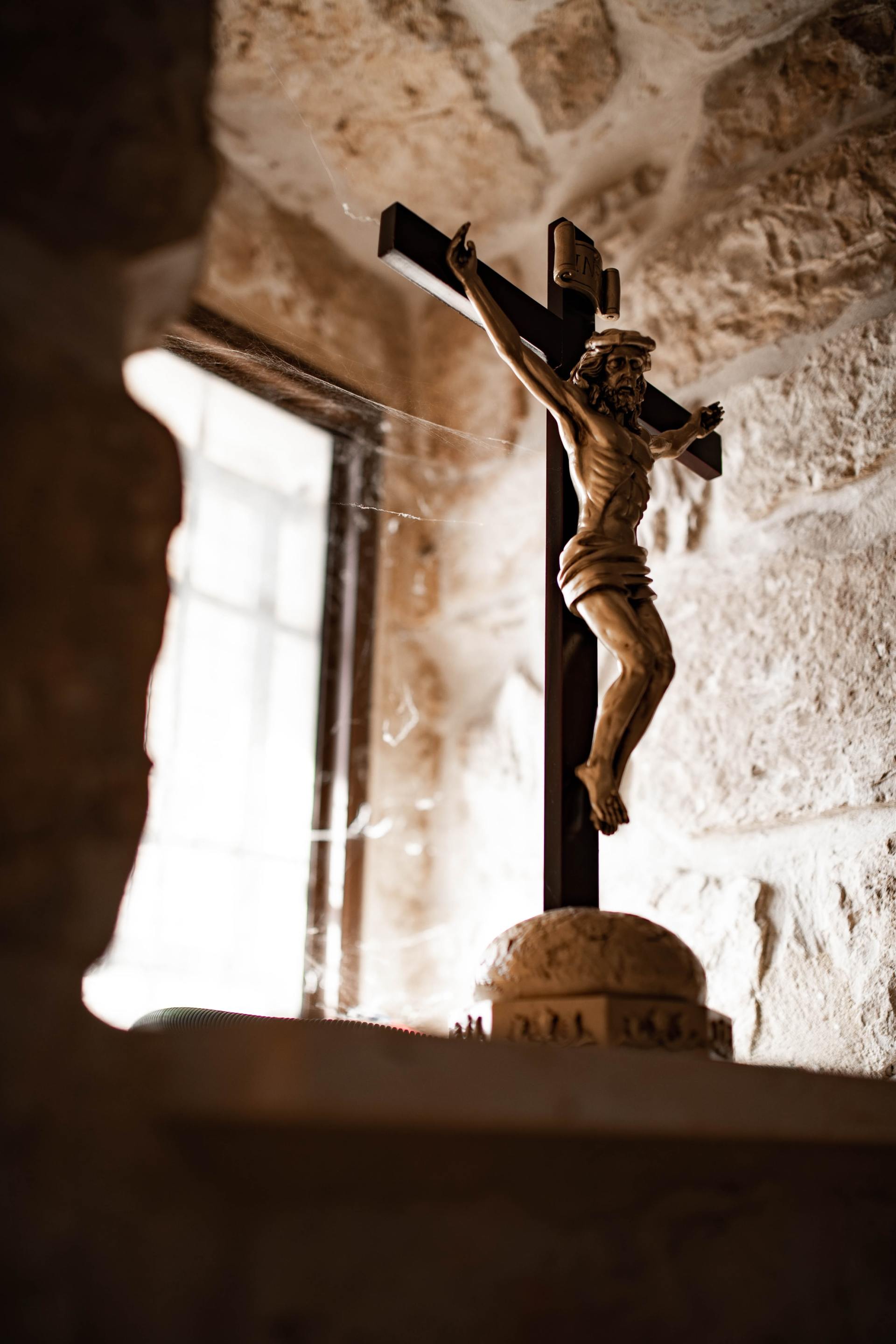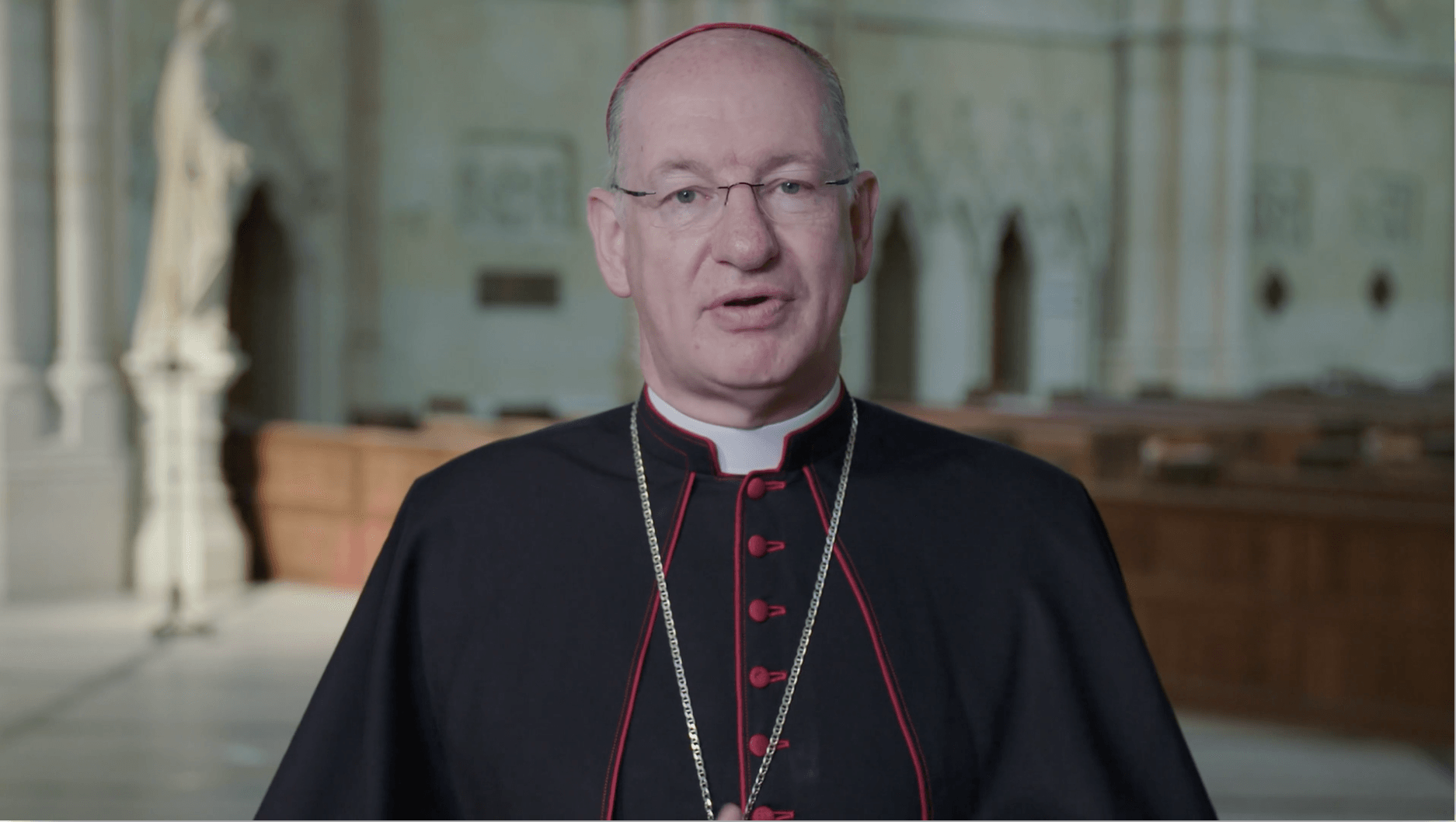Sheep or Goat
Webmaster • November 21, 2020

Like climbing to the top of Mt. Everest, our gospel this weekend is the pinnacle of Jesus’ teachings in the Gospel of Matthew. This is not a parable, but instead the interpretative key to Jesus’ teachings earlier in the gospel. Now what Jesus said in the Sermon on the Mount (7:21-23), that ‘not all who call Lord, Lord will enter the kingdom of heaven,’ becomes clear. This story also foreshadows his resurrection appearance and promise in the closing line of the gospel, ‘And behold, I am with you always, until the end of the age’ (28:20).
In the gospel story, we are two days from Passover when Jesus will be handed over to be crucified (26:1-2). All that remains between this teaching and the Passover meal Jesus will celebrate with his disciples is his anointing at Bethany by the woman with an alabaster jar of perfumed oil (26:6-13). So this teaching about how we will be judged is the crescendo of Jesus’ message.
Jesus’ promise to be with us always is fulfilled in that he is present in the hungry, thirsty, naked, ill, imprisoned, and in the stranger. Though some who claim to know Jesus are surprised that they did not see him in the face of the poor, this is to their own perdition. Even more, those who did not or do not know Jesus receive their heavenly reward precisely because they did the will of God; they fed the hungry and in so doing they were feeding Jesus. They gave drink to the thirsty and in so doing they were giving drink to Jesus.
Jesus doers not say that it is as though he is present in these people. No, he is them: ‘I was hungry and you gave me no food.’ ‘What you did not do for one of these least ones, you did not do for me.’ Again, Jesus does not say, ‘It’s as though you did not do for me.’ He identifies with the poor and the lowly, for he is them.
There are no excuses on the part of those who claim to have known Jesus. They cannot say that the poor were not working, or they deserved to be poor, or they should get a job. Those who claim to know Jesus but have not acted on behalf of the poor are sent off to eternal punishment. ‘Depart from me, you accursed.’ We now see clearly how not everyone who cries Lord, Lord will enter the kingdom, but only those who do the will of my father (7:21-23). Indeed, this chapter and this particular teaching is at the root of the Catholic Church’s ‘social gospel.’ It is why the Church established hospitals, schools, food banks, social services, and so many other ministries. Faith in action, rather than faith alone, is the Church’s credo. And it is not enough to rely upon others, the Church at large, to perform this ministry. It is the obligation of anyone who dares to call himself or herself a disciple of Christ. Indeed, those who do not know Christ but still perform these actions will inherit eternal life. These sober words conclude Jesus’ teaching ministry and are a clarion call to all who would seek to follow him.
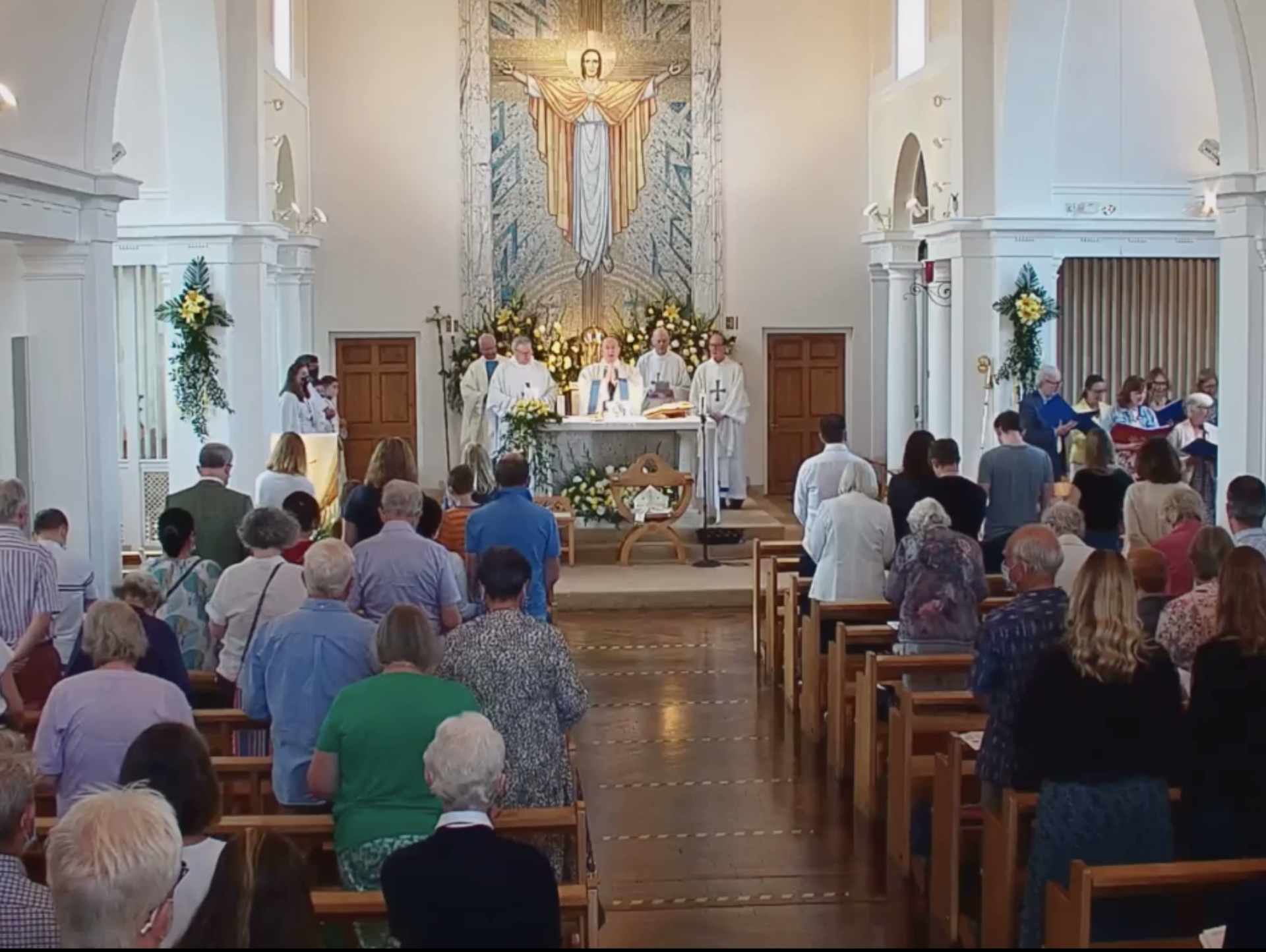
The musings of one of God’s smallest creatures on events in and around the Parish over the past seven days . . . . Once more a busy time at The Presbytery over the past week . . . . . Our Confirmation candidates for 2026 were all present at our Saturday evening Mass as they celebrated the ‘Rite of Enrolment’ for this year’s programme. The celebration of Confirmation this year (barring no changes due to not having a bishop) will take place on Saturday 9th May at St Joseph’s, Epsom. At all of our weekend Masses we were informed by Sr Patricia about the upcoming ‘Film Matinee’ that ODN’s are having on 21 st February (next Saturday). The showing of ‘The Mission’ will take place at the Montaigne Theatre, Notre Dame School, with interval, refreshment and raffle. All proceeds going to the various mission projects that ODN’s support. On Monday evening Fr D came back early from his day off to attend a meeting of the ‘shadow’ Epsom Parish Leadership Team (clergy and laity). Most of the meeting was spent looking at the raw data from the postcards that had come from every parish in the deanery in Advent. The vast majority of comments were very positive and up-beat in nature and will feed into shaping the new larger parish (should a new bishop wish to continue with the process) in the future. There was no Morning Prayer, Mass, or Exposition on Tuesday morning as Fr D had to be in the diocesan offices early, playing host to a joint training day for the Southwark and Arundel & Brighton Tribunals. In the evening Fr D was picked up by the Esher Catenians for their Clergy and Ladies evening. When he arrived home Fr D almost forgot that he had a male guest for three nights - an education specialist from the Company of our Lady, who the sisters ask Fr D to find a bed for. On Wednesday after Morning Prayer and Mass, Fr D was putting the finishing touches to the questions at next week’s Pancake Quiz Night. This year all the questions are ‘general knowledge’ with no specialist ‘Catholic’ questions; there are, however, several questions where having a younger parishioner on the team might well be advisable! At lunchtime Fr D went to meet Fr Ruslan (Walton-on-Thames) for their monthly lunch. Following Morning Prayer and Mass, Fr D went off down to the diocesan offices once more to continue with his marriage cases. In the evening when he returned he had a final session with the young family who will be celebrating the baptism of their child after our 11.00 Mass this Sunday . . . .
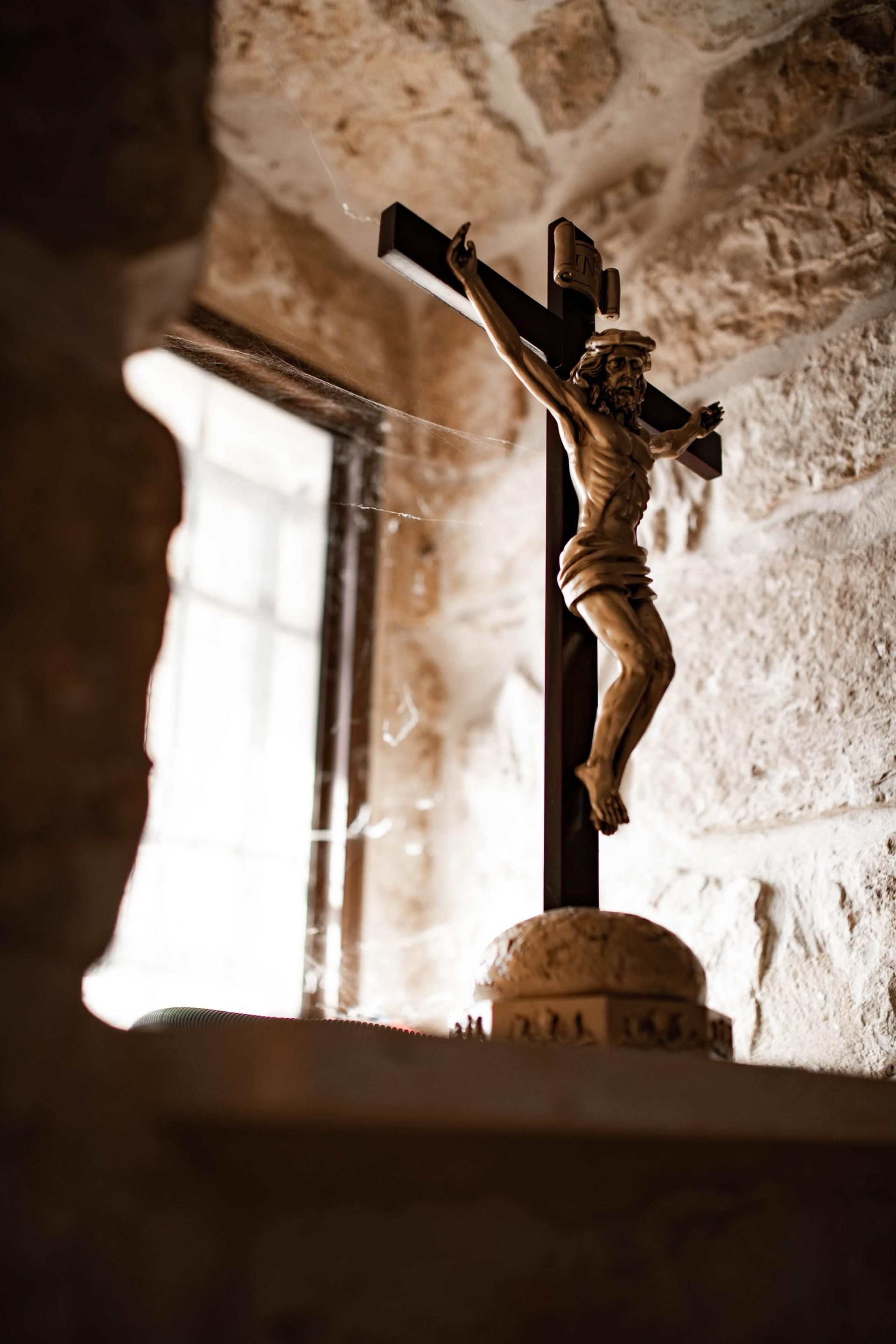
WAY OF THE CROSS & SOUP LUNCHES, FRIDAYS DURING LENT - Beginning Friday 20th February helpers are required: (1) to lead the Stations of the Cross prayers and (2) teams of 2 to provide the soup and bread, to set up cutlery/tables in the Parish Centre. Please use the Sign-up sheet at the rear of the church.
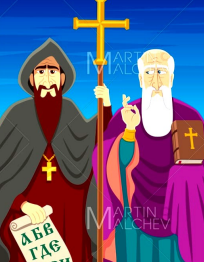
After a course of studies, Cyril refused the governorship of a district such as his brother had accepted among the Slavic people. Cyril went to live in a monastery where his brother Methodius had become a monk after some years after leaving a government post. A change in their lives occurred when the Eastern Emperor gave the Slavs political independence from German rule and allowed them to have their own clergy and liturgy. Cyril and Methodius undertook the missionary tasks involved. Cyril’s first work was to invent an alphabet, still used today in some Eastern liturgies. Together they translated the Gospels, the Psalms, Paul’s letters and the liturgical books into Slavonic, and created a Slavonic liturgy. Their free use of the vernacular in preaching led to opposition from the German clergy. The bishop refused to consecrate Slavic bishops and priests, and Cyril was forced to appeal to Rome. On the visit to Rome, he and Methodius saw their new liturgy approved by the Pope. Cyril, long an invalid, died in Rome 50 days after taking the monastic habit. Methodius continued his mission work for 16 more years. He was papal legate for all the Slavic peoples, and consecrated a bishop. Since much of their territory was removed from their jurisdiction, the German bishops retaliated against Methodius. This resulted in Methodius being exiled for three years. Pope John VIII secured his release. He died on the Tuesday of Holy Week, surrounded by his disciples, in his cathedral church. In 1980, Pope John Paul II named them additional co-patrons of Europe.

The musings of one of God’s smallest creatures on events in and around the Parish over the past seven days . . . . The Presbytery is now back to a steady rhythm or normal timetable as we enter the fifth week of the first section of Ordinary Time this year. However, Lent is fast creeping up on us (Fr D has noticed that Easter Eggs are ‘front and centre’ in the shops - ready for the shop keepers to make their money! At our 11.00 Mass last Sunday we again welcomed our First Eucharist candidates and learnt that they had been looking at that section of the Mass that we call the ‘Liturgy of the Word.’ To make this, during the Mass they were presented with their own copy of the Gospel that we are reading at Sunday Masses this year, the Gospel of Matthew. When they had met with Fr D on the Saturday morning they had been talking about how important it was to listen in life and at Mass; Fr D told them that it was no mistake on God’s part that we had two ears and only one mouth - so we should be listening twice as much as speaking! After Morning Prayer, Mass, and Exposition Fr D was not having to rush off to the diocesan offices because his secretary was off with flu (too much fraternising with her grandson a nursery student!). This worked well as Fr D had received an email in the morning from the lighting engineers who visited the church last Friday containing the write up of what they had discussed. They will now come and complete a full survey of the lighting system (wiring, Lumières, switching and the ‘brain’ under the stairs). This will take about half a day and at the end of it (when it is darker outside) they will show some possible modern led replacements for our present halogen units. In the evening Fr D met with the Parish Finance Committee to review last years figures and look at what is happening now that we are losing our bishop and what this might mean for the work of the Finance Committee. On Wednesday evening Fr D met with our Confirmation candidates in the Parish Centre for the second of their sessions (the Holy Spirit and Confirmation). They also spoke about the possibility of taking on a confirmation name when they are confirmed in May and were encouraged to look in the school libraries for a Book of Saints Names or on the internet, to learn a little about what their chosen saint did to become a saint. On Thursday afternoon Fr D was in Eastbourne for a meeting of the Bosco Catholic Education trustees, this was taking place at a school that was coming up to its first anniversary of joining the trust . . .

The musings of one of God’s smallest creatures on events in and around the Parish over the past seven days . . . . Quite a full week around The Presbytery this time as we finish the first month of the New Year (already!) . . . . Over last weekend Fr D met with someone in the process of being prepared to be received into the Church along with baptising her daughter; both have been working towards this for a few months now and we will hopefully accept them as members of our Parish community over Easter this year. Fr D also met with a young couple from the Parish who will be getting married in Sicily later in the year (fortunately both parties are Catholic so it requires the minimum of paperwork for Fr D to undertake!). At our 11.00 Mass on Sunday the Rite of Welcome was celebrated for a baby girl who will be baptised as a member of our community in a few weeks. Following Morning Prayer, Mass, and Exposition on Tuesday, Fr D went off to the diocesan offices in Crawley to continue his work at the Tribunal. In the evening he again met with the parents of this year’s First Eucharist candidates for their second session; this time they were looking at the first main section of the Mass the ‘Liturgy of the Word,’ ready to help their children on Saturday morning. On Wednesday, once he had celebrated Morning Prayer and Mass, Fr D began work on his parts of the newsletter for this week. In the afternoon he had a meeting with the other priests from the Deanery in response to a request from the Apostolic Nuncio. In the evening Fr D met with our candidates for Confirmation in the Parish Centre, looking at God’s love for us individually shown in Baptism and the other sacraments of the Church. Straight after celebrating Morning Prayer and Mass on Thursday Fr D, once more, went down to the Tribunal to continue his work on marriage cases. He, in fact, had several new applications to look at before deciding to accept them. He also had to inform someone that their annulment had failed to prove invalidity of their marriage. When he got home in the late afternoon Fr D managed to finalise and lodge his income tax (before the deadline!), as well as complete his parts for the newsletter. Having celebrated Morning Prayer and Mass on Friday, Fr D had a church lighting engineer (just completed renewal of Worth Abbey) come to meet him in the church to look at possible solutions for replacing our obsolete halogen lighting and changing to more modern and cost effective LED lighting . . . . . . .
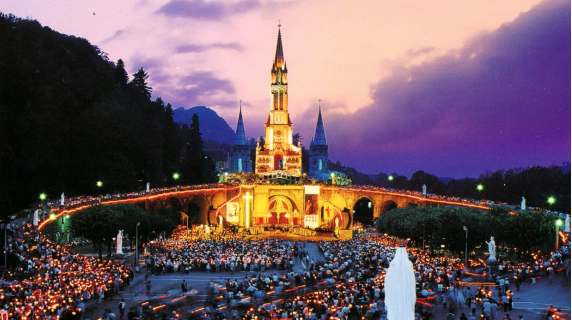
Applications for our Diocesan Lourdes Pilgrimage are open now! Is Our Lady calling you to Lourdes this summer? Travelling to Lourdes is a wonderful experience full of fun, companionship, faith, friendship and laughter. Each person on our pilgrimage brings distinctive gifts and graces with them, benefitting those they meet during the week. What do we do during our Pilgrimage Week? We have a daily programme of events which includes a number of Masses and liturgies in different settings, with different themes. The Pilgrimage opens with a Mass of welcome for everyone and opening ceremony, where everyone is invited to have their hands blessed in recognition of the service we offer each other as we make our pilgrimage together. We also celebrate Mass at the Grotto where we remember friends and family members who have died, and a Mass of farewell shortly before we leave Lourdes. There is a Holy Hour during the week, a time for Lectio Divina, and many other opportunities for private and group prayer at the Grotto and in the Sanctuary.
